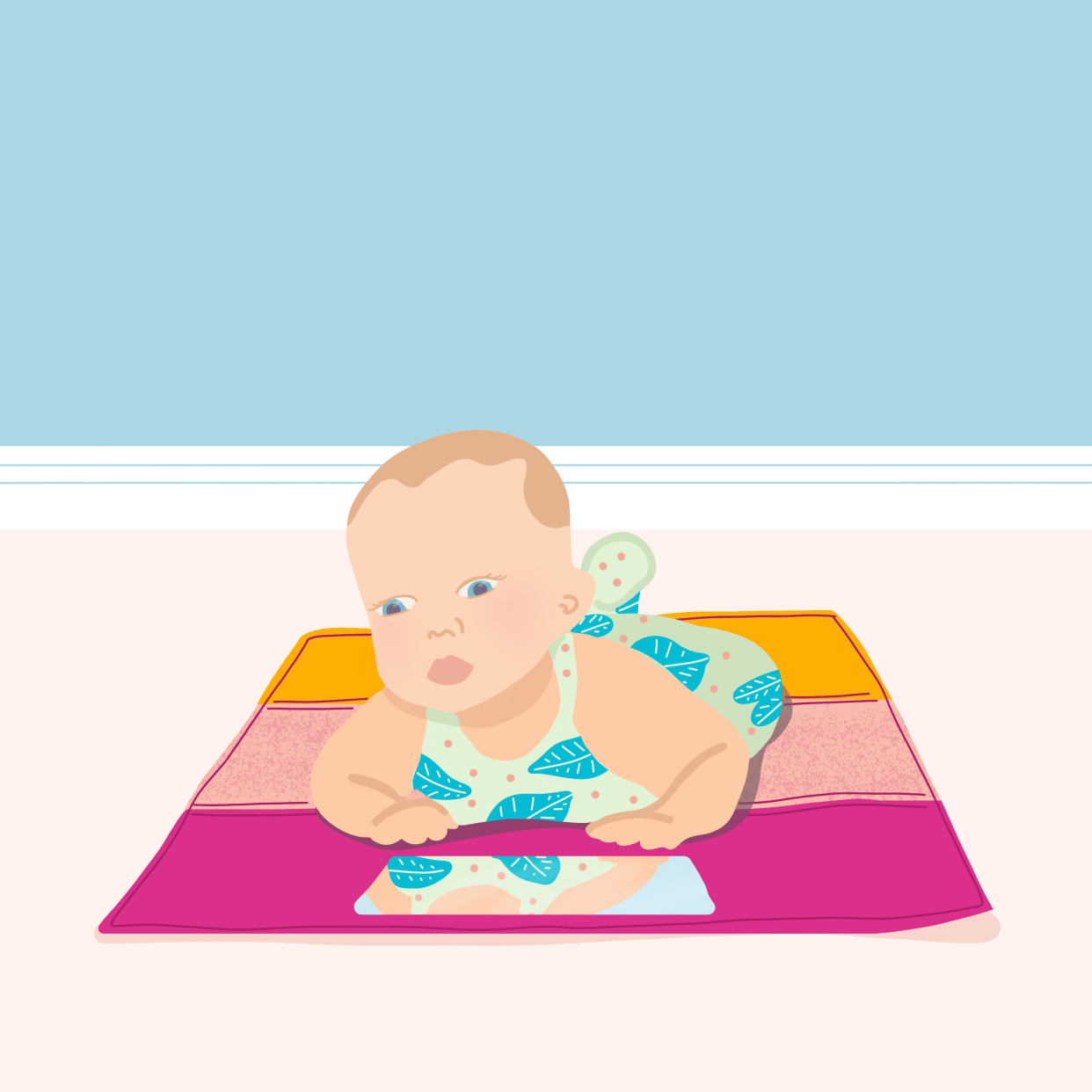2 Month Old Baby Milestones

Caitlin-Marie Miner Ong Caitlin-Marie Miner Ong
Your baby starts to wake up both physically and emotionally during his second month of life. Although he's probably still sleeping a lot, he'll become increasingly alert as the weeks go on.
What to Expect in the Second Month
"Your baby is beginning to have more control over his body by 2 months, although his coordination is still very limited," says Anne Zachry, Ph.D., a pediatric occupational therapist and author. Instead of keeping his hands tightly clenched all the time, he might start to bring his fingers to his mouth. He's also getting stronger. "If you position him on his tummy, he may be able to push off with his forearms and lift his chest off the floor," Dr. Zachry says.
RELATED: Your Baby's Milestone Chart
As another 2-month-old baby milestone, your little one will start to discover his body. You might catch him examining his hands, sucking on his feet, or kicking. As his vision improves, he'll start to take note of the world around him and will use his eyes to track an interesting object. Around 6 weeks, Baby might delight you with his first gummy smile.
Check with your pediatrician if your baby doesn't seem to notice his hands by 2 months, Dr. Zachry recommends. And don't freak out if your child abruptly shifts from happy to hysterical—sometimes a baby just needs a break from play or social stimulation.
How to Help Baby Development
As fun as it is to snuggle your little one, don't forget to provide plenty of floor play. "It plays a huge role in the development of strength, balance, and coordination that your baby needs to gain motor skills and reach critical developmental milestones," Dr. Zachry says. Another reason to embrace tummy time: Although experts recommend that babies sleep on their back to prevent SIDS, too much time lying on her back in the crib, car seat, or bouncy chair can lead to a flat spot on the back of a baby's head that may require a corrective helmet later on.
Try building in tummy time through daily interactions, but don't force it to the point that baby is upset, says Claire Lerner, LCSW-C, director of parenting resources at Zero to Three, a national nonprofit focused on infant and toddler development. "It's always critical to follow the child's lead," she advises.
RELATED: Your Guide to Tummy Time
Another fun way to give baby a workout is to position her so she can kick a rattle or mobile; the noise will help her understand cause and effect, Lerner says.

